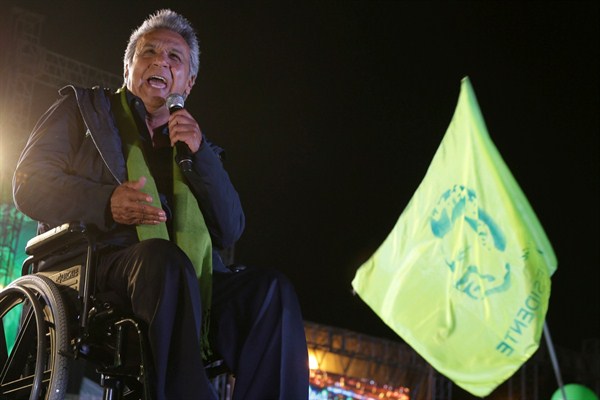On Sunday, April 2, Ecuadoreans returned to the polls to elect their president in a second round of voting after a highly contentious campaign season. During the first-round ballot, former Vice President Lenin Moreno won 39.2 percent of the vote, just shy of the 40 percent required to avoid a runoff. His challenger in the second round was banker Guillermo Lasso, who won approximately 28 percent of the first-round vote.
The campaign for the second round was divisive and at times became a referendum on controversial outgoing president, Rafael Correa. Voters struggled to muster excitement for either candidate. In fact, many Ecuadoreans did not vote for a candidate but, rather, against the other one. Moreno struggled to escape both Correa’s shadow and corruption allegations against his running mate, current Vice President Jorge Glas. Many voting for Lasso were, in effect, voting against Correa and his “21st-century socialism.” They were also voting against Correa’s brash style, which sometimes resulted in public attacks against citizens, and his rollbacks on media and press freedoms. Additionally, voters were angry about corruption and Correa’s lack of accountability. In short, Lasso was the “change” candidate.
Meanwhile, Lasso struggled to overcome the public’s perception that he is wealthy and out of touch, as well as his role in Ecuador’s 1999 banking crisis, which not only resulted in a financial crisis but caused a significant wave of Ecuadorean migration. For many it was also a class vote. Voting for Moreno meant voting against the country’s wealthiest elites associated with Lasso, who owns a bank in Panama.

